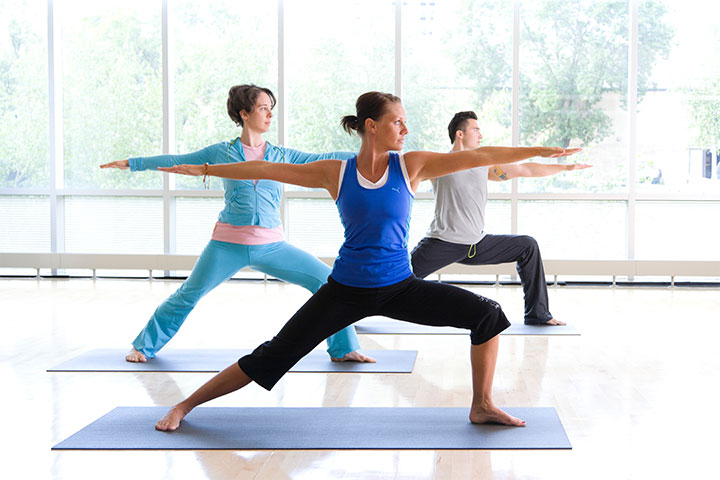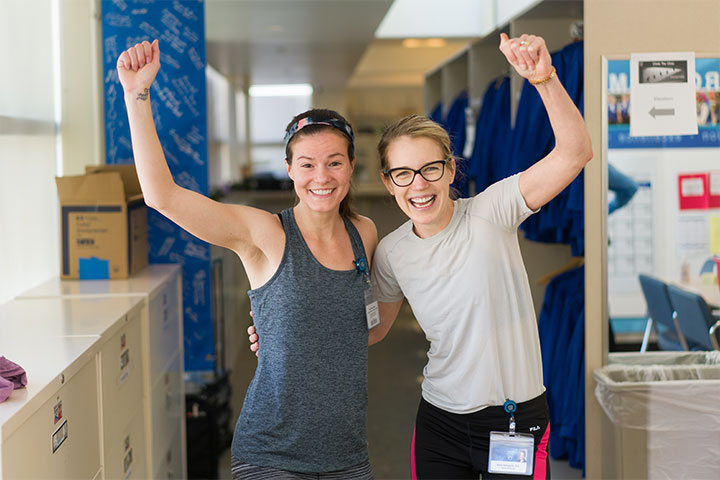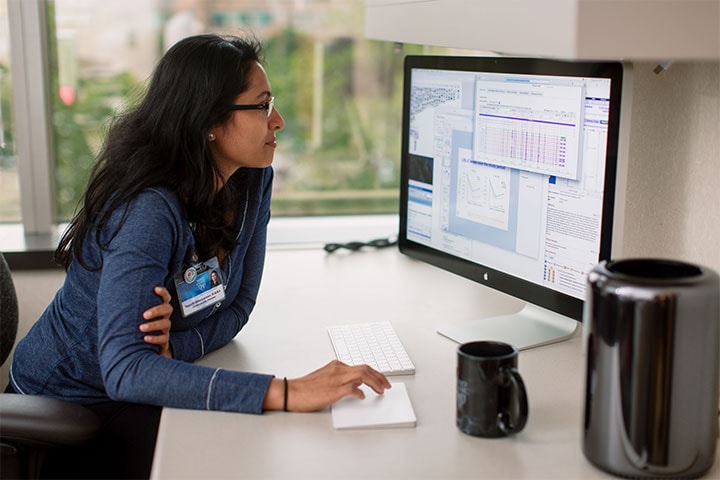Curriculum
/prod01/channel_2/media/mccms/content-assets/academics/residencies-and-fellowships/trauma-genitourinary-reconstruction-fellow-mn/overview/trau-geni-recon-operate-mn-1024X512-WF3548924_0071.jpg)
Training
The program's overall mission is to provide 12 months of intense, comprehensive clinical and surgical training in urologic reconstruction and urologic prosthetics, preparing you for a practice focusing on meeting the unique reconstructive needs of our patients.
Rotation schedule
Utilizing a 1:1 mentorship model, the clinical year consists of six sequential 8- to 9-week rotations with three GURS trained faculty members. Rotations provide a comprehensive experience, and advanced training, in complex facets of procedures, pathologies, and case management. Experience includes both complex open surgery and advanced robotic reconstruction. Fellows will treat a high volume of male urethral stricture disease (using open, robotic, and endoscopic approaches), genitourinary fistula, ureteral stricture disease, and male stress urinary incontinence. The program provides in-depth exposure and training involving the complexities of multi-disciplinary genitourinary reconstruction and cancer survivorship. The fellow gains experience and competency in the surgical management of patients with neurogenic bladder, acquired buried penis, and gender affirming surgery.
Didactic training
The fellow participates in weekly imaging and pathology case conferences, dedicated biweekly reconstructive urology indications conferences, as well as monthly reconstructive urology Journal Club. The fellow also meets bimonthly with the trauma and reconstructive faculty to present and discuss unusual, complex, and challenging cases. Simulation exercise programs using a state-of-the-art robotic console, simulation facilities, and courses designed to practice and hone microsurgery skills are available.
Research expectations
You're provided opportunities and encouraged to actively pursue research projects. A broad range of research opportunities are available within the program, and there is an opportunity within rotations for research activities.
Mayo Clinic's Trauma and Genitourinary Reconstruction Fellowship actively supports the preparation of manuscripts for publication and travel to regional and national meetings to present research data.
You're required to submit a minimum of one manuscript for publication in a peer-reviewed journal or national/international meeting abstract before the end of the fellowship.
Call frequency
Fellows in the Trauma and Genitourinary Reconstruction Fellowship program are not scheduled to take call.
Teaching opportunities
Periodically, you will meet with a mentor and the program director to discuss individual goals and future career plans. If you're interested in education, you will have opportunities to present didactic lectures to the residents. Also, you may attend the annual Teach-the-Teacher Education Symposium held in the Department of Urology for faculty development purposes.
Conferences
Participate in the Trauma and Genitourinary Reconstruction Journal Club conference once a month, which is specifically designed for the advanced reconstructive trainee, as well as dedicated biweekly reconstructive urology indications conferences. Also, you will attend the weekly Urology Imaging and Pathology Case Conference and participate in the monthly Morbidity and Mortality Conference with all urology faculty and trainees. You're expected to attend the weekly Topic-Oriented Journal Club Conference when reconstructive topics are presented. Opportunities to attend other regularly scheduled didactic conferences covering urologic cancers and other pathologies are available.
Evaluation
To ensure you gain proficiency and develop the corresponding technical skills, supervising faculty members monitor performance throughout this program. The supervising faculty member completes competency-based electronic evaluations after each clinical rotation. The program director meets with you to review these evaluations on a quarterly basis and more frequently if necessary. Additional evaluation is obtained by residents, allied health staff, and patients.
In addition, you have the opportunity to evaluate the faculty and the program to ensure educational goals are being met.
Work/life balance
Fellows in the Trauma and Genitourinary Reconstruction Fellowship program have access to all that Mayo Clinic and Rochester, Minnesota, have to offer. We'll support you both inside and outside of Mayo Clinic's campus to promote wellness and ensure your work/life balance.
- Dan Abraham Healthy Living Center
- Groups on campus
- Well-being
Dan Abraham Healthy Living Center
 Trainees have access to the Dan Abraham Healthy Living Center (DAHLC), which is located on both Mayo Clinic campuses (downtown and Saint Marys) in Rochester, Minnesota. This state-of-the-art fitness facility offers basic classes (including free weights, stretching, cardio, and more), drop-in classes, evaluation services, group training, virtual personal training, and virtual wellness coaching.
Trainees have access to the Dan Abraham Healthy Living Center (DAHLC), which is located on both Mayo Clinic campuses (downtown and Saint Marys) in Rochester, Minnesota. This state-of-the-art fitness facility offers basic classes (including free weights, stretching, cardio, and more), drop-in classes, evaluation services, group training, virtual personal training, and virtual wellness coaching.
Membership to the DAHLC is available at a low cost to trainees and their families through payroll deduction.
Video: Dan Abraham Health Living Center
Video: A look inside the Dan Abraham Health Living Center
Groups on campus
 Several groups on campus help you connect with other fellows and their families, such as the Mayo Fellows Association, the Mayo Families' Connection, and Mayo Employee Resource Groups. These groups help enhance your training by providing and organizing wellness initiatives and social activities.
Several groups on campus help you connect with other fellows and their families, such as the Mayo Fellows Association, the Mayo Families' Connection, and Mayo Employee Resource Groups. These groups help enhance your training by providing and organizing wellness initiatives and social activities.
Workshops for spouses and significant others are also available.
Well-being
 The Office of Academic Support and Well-Being provides resources to promote academic, emotional, social, cognitive, financial, and physical well-being. Career and academic services include academic advising, peer tutoring, and accommodations for learners with disabilities or health conditions. Mental health services, counseling, interview practice, and a variety of enrichment sessions on topics like budgeting, resiliency, and stress and burn-out are also available through the Academic Support and Well-Being office.
The Office of Academic Support and Well-Being provides resources to promote academic, emotional, social, cognitive, financial, and physical well-being. Career and academic services include academic advising, peer tutoring, and accommodations for learners with disabilities or health conditions. Mental health services, counseling, interview practice, and a variety of enrichment sessions on topics like budgeting, resiliency, and stress and burn-out are also available through the Academic Support and Well-Being office.
/0x0:512x512/prod01/channel_2/media/mccms/content-assets/academics/residencies-and-fellowships/renal-transplant-fellowship-arizona/512X512-1321573_3536601_0003.jpg)
Video: I Am Mayo
2:54